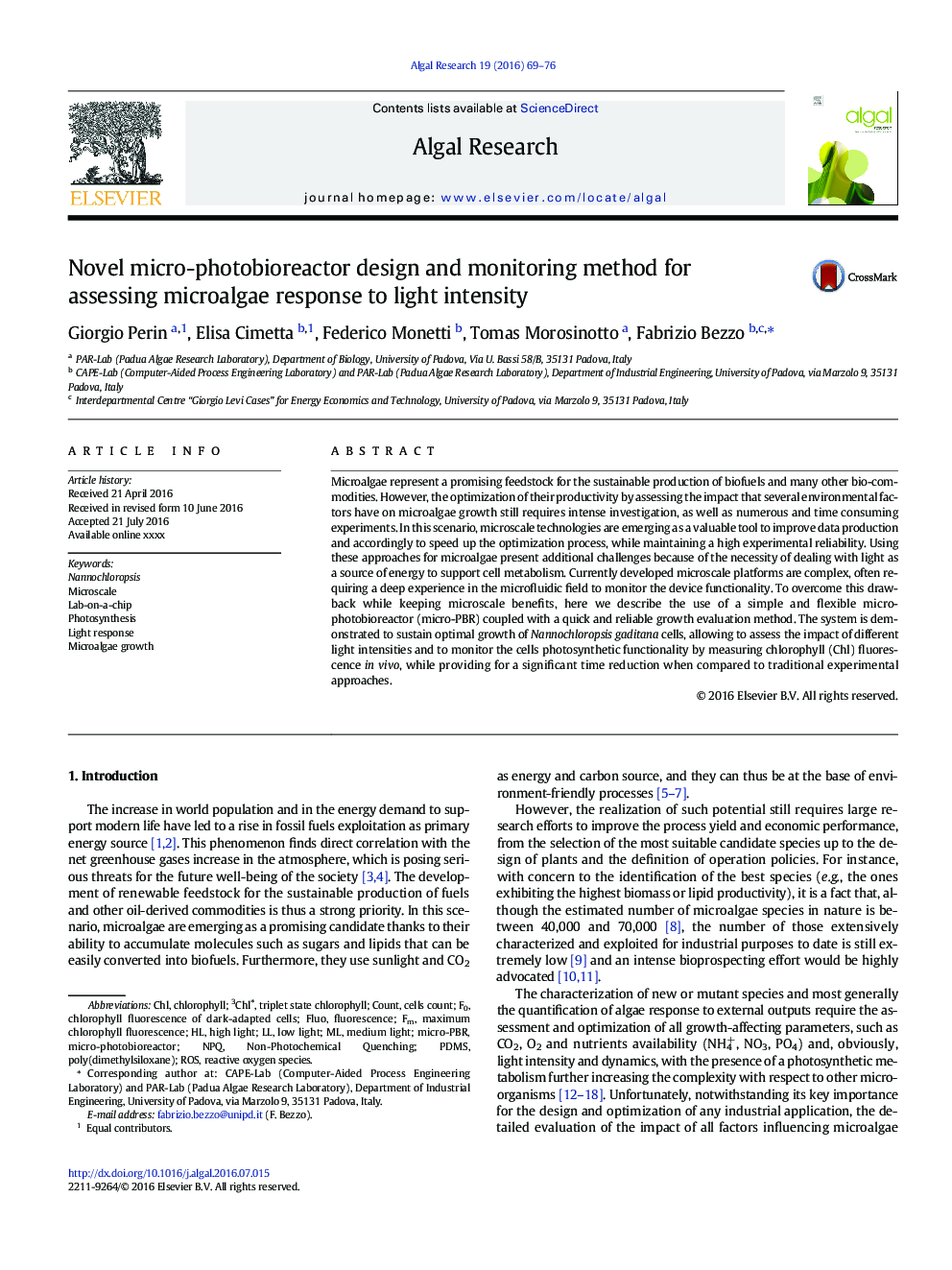| Article ID | Journal | Published Year | Pages | File Type |
|---|---|---|---|---|
| 8086469 | Algal Research | 2016 | 8 Pages |
Abstract
Microalgae represent a promising feedstock for the sustainable production of biofuels and many other bio-commodities. However, the optimization of their productivity by assessing the impact that several environmental factors have on microalgae growth still requires intense investigation, as well as numerous and time consuming experiments. In this scenario, microscale technologies are emerging as a valuable tool to improve data production and accordingly to speed up the optimization process, while maintaining a high experimental reliability. Using these approaches for microalgae present additional challenges because of the necessity of dealing with light as a source of energy to support cell metabolism. Currently developed microscale platforms are complex, often requiring a deep experience in the microfluidic field to monitor the device functionality. To overcome this drawback while keeping microscale benefits, here we describe the use of a simple and flexible micro-photobioreactor (micro-PBR) coupled with a quick and reliable growth evaluation method. The system is demonstrated to sustain optimal growth of Nannochloropsis gaditana cells, allowing to assess the impact of different light intensities and to monitor the cells photosynthetic functionality by measuring chlorophyll (Chl) fluorescence in vivo, while providing for a significant time reduction when compared to traditional experimental approaches.
Keywords
Related Topics
Physical Sciences and Engineering
Energy
Renewable Energy, Sustainability and the Environment
Authors
Giorgio Perin, Elisa Cimetta, Federico Monetti, Tomas Morosinotto, Fabrizio Bezzo,
